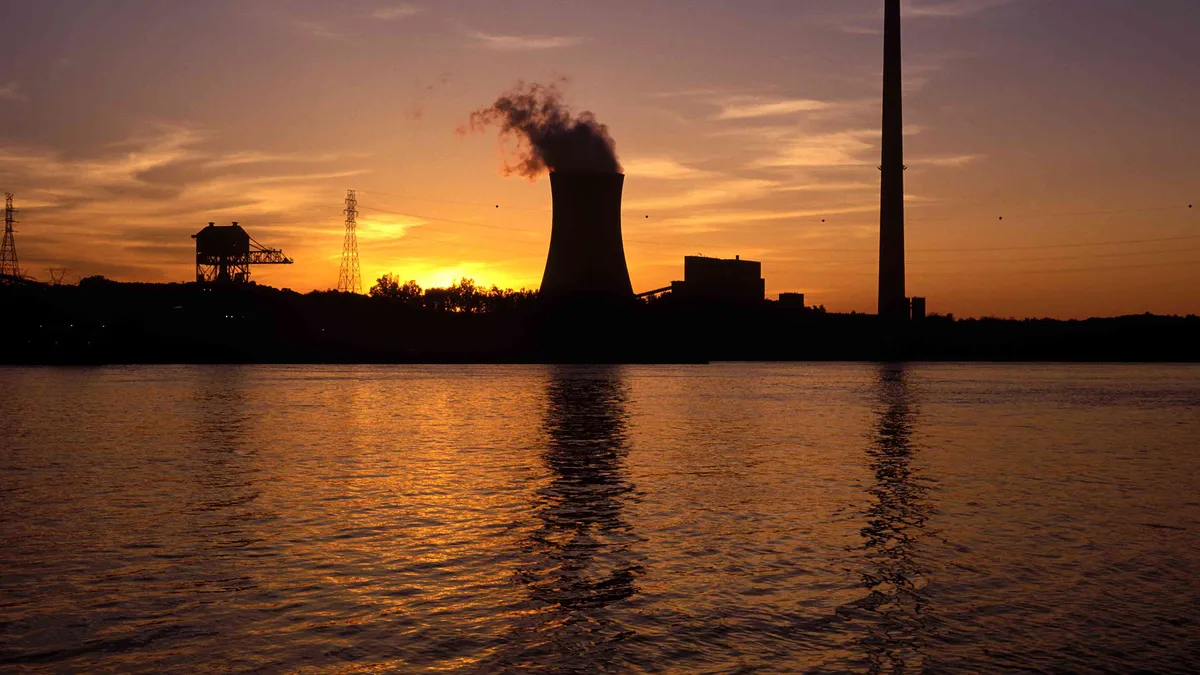Dive Brief:
- The North American Electric Reliability Corp. (NERC) warned the federal government's Clean Power Plan could force up to 60 GW of generation offline, putting many grid operators at risk for potential shortages, Platts reported.
- A final proposal is due out this summer, and officials at the U.S. Environmental Protection Agency have hinted that significant changes will be made from the initial plan.
Dive Insight:
Anticipation for the release DOE's final carbon proposal rules is growing, and now NERC says significant changes may be necessary to avoid power outages in many regions. Platts reports that the group will release a report in two weeks detailing how the government's Clean Power Plan could stress the grid in many regions across the country.
NERC issued a report last year showing the nation would need additional time to comply without jeopardizing reliability.
But, reporting from the Gulf Coast Power Association's Spring Conference in Texas, Platts also pointed out that EPA Policy Advisor Robert Lawrence told a panel that significant changes would be included when the final proposal is released.
"I guarantee you it won't be the plan as proposed," he said.
There has been much speculation over what the EPA's proposal to slash emissions by 30% would do to the nation's grid, particularly in forcing older, less-efficient coal generation offline. Analysts and industry insiders alike expect significant changes in the final rule, and the agency has been allowing for different strategies that would allow states flexibility in how they comply.
But not everyone agrees the plan would hurt the nation's grid reliability. In February The Brattle Group concluded the CPP allowed for sufficient alternatives and was unlikely to significantly impact electricity reliability. Responding to NERC's fears over reliability, Jurgen Weiss, senior researcher and lead author of the Brattle report said they were "largely overstated."
“In its initial reliability review, NERC raised several concerns about the feasibility of achieving emissions standards with the technologies used to set the standards, but NERC did not address several mitigating factors," Weiss said.















